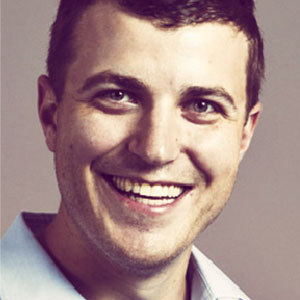An open letter to incoming MPS Superintendent Ed Graff
Superintendent Graff,
Welcome to Minneapolis. I’m a life-long resident of the city, a graduate of Minneapolis South High (’02) and the leader of a nonprofit focused on education advocacy in Minnesota. As such, I had a slightly above-average interest level in the district’s search for its next Superintendent. What’s more, your selection impacts me in a personal way: I’m the father of two young kids who will be under your charge in the not-too-distant future.
During one of the interviews for the job, you shared that you believe that “addressing equity is the framework for addressing the achievement gap.” As you know, students of color in Minneapolis district schools face one of the largest achievement gaps in the country, so it goes to reason that we’re going to need a healthy serving of equity to help put a dent in that gap.
As reporter Beth Hawkins and lawyer/racial justice activist Nekima Levy-Pounds have both recently written (Beth on the74.com and Nekima on the Star Tribune blog), we Minnesotans love talking about equity, so you’ve already made some fans with your words. It’s the doing part of equity that we struggle with; especially us white Minnesotans.
So, below I’ve offered up some entirely unsolicited advice for your consideration on how to actually do equity:
1. The word equity is used a lot. So much that many people have lost sight of what it means, or maybe just made assumptions that weren’t quite right. It doesn’t mean every student is treated the same. It means that students, schools, and communities who already have a lot of privilege don’t get as much investment as those who face major obstacles—such as generational poverty, institutionalized racism and language and cultural barriers. Until we as taxpayers are willing to invest more, really doing equity might mean making some slices of the pie smaller in order to expand others.
Now don’t get me wrong: taking this approach may be politically unpopular. But, it will be the right thing to do. Students who face the greatest barriers—in our community that means students of color and low-income students—should have the nicest facilities and the most resources and the greatest opportunities. They should have most highly-skilled teachers. As I’ve written before, I want students of color to have more of this stuff than is afforded to my own son and daughter, to ensure that all students truly and meaningfully have equal opportunity. We’re nowhere near that today. The deck is stacked heavily in favor of kids like mine, and we need to change that.
2. Racism exists at all levels of our education system. You’re at the top of that system. You are responsible for helping to stomp it out. I once wrote a blog responding to an educator in your district who said that he doesn’t see race. The blog is called, “Don’t see race? That’s the problem.” In it, I wrote, “We can’t combat racism by alleging that we don’t see race. Having the color of one’s skin be ‘the last thing on your mind’ is a privilege only afforded to whites.”
Speaking of, you’re white. Much has been made of your race on social media. I’m white, too. You have to be up front and acknowledge this. Be intentional about race. And, most importantly, do the hard work of engaging leaders from communities all across Minneapolis. Not just in public meetings, but behind closed doors, where many decisions are made. Develop a kitchen cabinet of advisors whose backgrounds are representative of the students you’ve been hired to serve. Ask them to hold you accountable for recognizing your own privilege and how that affects the ways you lead. When people call you out—as they’ve done to me as a white leader—really listen, reflect and respond.
3. Work to break the school-to-prison pipeline. This starts with district policies on school discipline, special education screening, and student reassignment. As you know, black and Native American students are kicked out, pushed out, counseled out and otherwise excluded from the learning environment at rates far higher than their peers. You must work with your principals and district leaders at all levels to assess and improve discipline policies. This starts with affirming the background and identity of all of the district’s students and then finding appropriate ways to direct student energy into and not out of the learning environment.
4. Earn the community’s respect by being honest and accountable. You are the pacesetter for community expectations of our schools and students. Set bold and ambitious goals for student achievement and be honest about the district’s progress towards your goal. Don’t sugarcoat results or “spin” them to make you and your team look good. Be straightforward. Let us know where progress is being made and where more work needs to be done.
5. Finally, don’t just listen to me, or to people like me. Look to the community. Look to parents and students, and not just the loudest voices among them. I hope you’ll find ways to engage people who represent Minneapolis as a whole, focusing on those who are too often left out.
Good luck and godspeed. You’ve been selected for an incredibly important job. The talking about it part is over. Now it’s time to do.
Daniel Sellers
Executive Director, MinnCAN
